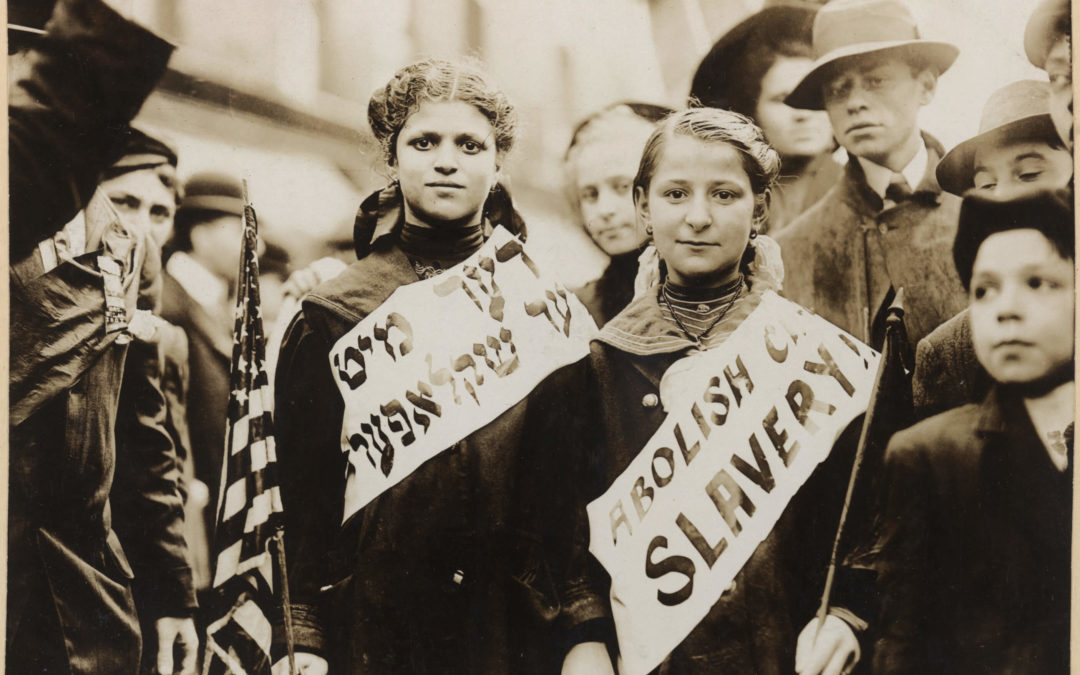
Thanks to all those who labor…
It’s time to reinstate the honor and dignity of labor in our national consciousness.
What Does Labor Day Mean for Your Family?
It’s time to reinstate the honor and dignity of labor in our national consciousness. I am proud that my grandparents were farmers, a plasterer, a switchboard operator. Laboring in America supports a decent life, creates the stability that is the springboard to greater achievement. And more, labor produces things of value; things we want like boats, and consumer electronics, and things we need, like medicine and homes.
Today the eight-hour workday, the five-day work week, unemployment insurance, workers compensation, child labor laws, industrial labor unions, collective bargaining – these are all hallmarks of American industrial labor practice. But those changes did not come without sacrifice. Many risked their lives to fight for labor reforms in our country. With so little power vested in those laborers, how did they manage to change society? And why did the reforms stick? And how come these are not the minimum standards around the world?
In many ways the history of the United States is the history of struggle to overcome the excesses of ultrawealthy monopolists and concentrated power. One way the status of the powerful and wealthy is perpetuated is the pitting of the laboring classes against one another; white verses black, Protestant verses Catholic, new immigrant verses local. In this way attention is diverted away from unfair or corrupt practices, and energy is diverted away from their reform. By favoring, in turn, one faction over another, and exhausting in conflict those who might otherwise compete for power, this divide-and-conquer strategy creates a paralytic, Brahminic calcification of the social strata. It all but eliminates upward (and downward) socio-economic mobility. It replaces merit as the quality that promotes one from a lower status to a higher status, with sycophancy, race or religion or gender – or some other tribal classification or mercenary motive.
Myopic self-interest, prejudice and bias can make this invidious dynamic all but invisible. But there are some in every epoch who see through this stagnating, destructive influence in society. There are scholars who theorize that Dr. Martin Luther King, Jr. was assassinated not because of his success in the black civil rights struggle, but because his focus was turning toward a more universal organization of laborers united around their common interests rather – than divided by their superficial differences.
But despite great odds, people of good will were persuaded, organized and overcame. Progress has been made. At one time in the United States, children were assigned a dollar value for the cost to buy their labor. A 1922 court case called Schendel v. Bradford awarded damages for the death of a child worker. The judge in that case expressed the social wrong well: “this cold-blooded calculating measure of human life…Awarding pecuniary damages to the next of kin of a child six years of age is mere making a business commodity out of the child and subjecting the loss of that child’s life to a dollars and cents argument.” That case was decided only one hundred years ago. How cynically exploitive must a society be to buy and sell its most vulnerable? Slavery today is considered one of the most repugnant human institutions. And yet child slavery was legal in 1922. Many practices that were accepted as legitimate for millennia, have been exposed as immoral and made illegal today. But what would motivate the most outmatched class to risk retaliation to press for change?
Those who came before us did not risk their lives thinking that they would achieve a utopia in their lifetime. They did not fight for political power so they could achieve great wealth. American laborers sacrificed in the hope that their children would have a better life. They did it for their families. And those who did not march or get beaten by strike-breakers, but who merely went to work under unfair conditions to support their families – those too sacrificed. Our parents and grandparents, and great grandparents worked hard to give us better lives. And that sacrifice has resulted in a better place.
A nation once convinced of the rational and ethical bases of the inferiority of people based on their skin color, immigrant status or religion, of putting a dollar value on a dead child, have rejected those beliefs for new societal norms. Anyone who reads history knows that fact is remarkable. But what is more remarkable is that the benefits of the struggles of our forebears have stuck. And we should not forget that these basic recognitions are not universally accepted in other nations.
When one considers the societal upheavals of other nations, the cyclical vendettas, ethnic cleansing, the decades of one-party rule, and warlordism that always follow human rights revolutions in almost all other nations, one might justifiably wonder why not here? The advancements have stuck here because of our foundation. If our founder’s flaws are a “stain” on the Country, their virtues sowed the seeds of those flaws’ undoing. American institutions permit the firm installation of betterment because they are founded on a belief in the existence of individual rights. No matter how powerful or numerous or pseudo-scientific the group demanding to deny those rights, the denial of our individual rights will always be fundamentally illegitimate in the United States. Americans know this instinctively. When we see a person being exploited, or getting treated unfairly, it just doesn’t feel right.
The betterment of America sticks because that betterment never comes at the cost of sacrificing our rights. It comes from their recognition. Those who fought true injustice ultimately won because they were supported by the legal recognition of these freedoms: freedom of speech and press, freedom to practice religion, the right to peaceably assemble, the right to a speedy and public trial, freedom against unreasonable searches and seizures, the illegality of bills of attainder and ex post facto laws; rights clearly and simply written down in our Constitution.
But they also succeeded because they were willing to sacrifice themselves. Our parents, grandparents and great-grandparents were willing to defer their own comfort and immediate gratification, their security for the betterment of their family. On this Labor Day I recognize that I labor to preserve those rights for my children. Perhaps not in an industrial setting, but by working all those who work contribute to civilization. They contribute to the stability that is the springboard to greater achievement for our literal and cultural progeny. I want to bequeath to my children the freedoms that are the tools that allow each generation to make our country better. Our institutions, to the extent they uphold our individual rights, make it possible for that betterment to stick. On this Labor Day, let’s not forget all those who have labored voluntarily and selflessly to make our country a better, fairer place.

Happy Labor Day
Thanks to all those who contribute to our society.
Live Online Estate Planning Workshop!
learn Your Options
and get your plan options within 48 hours of returning the information


